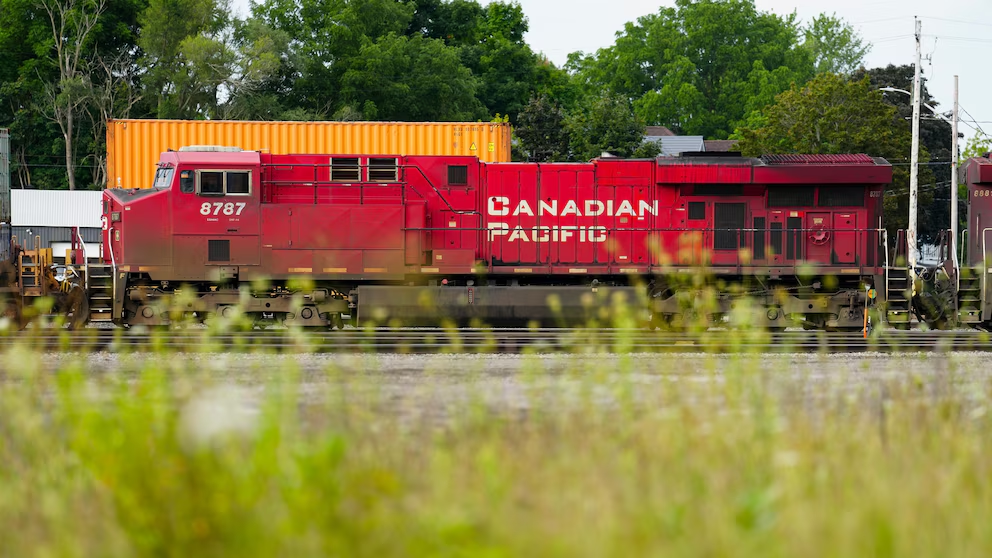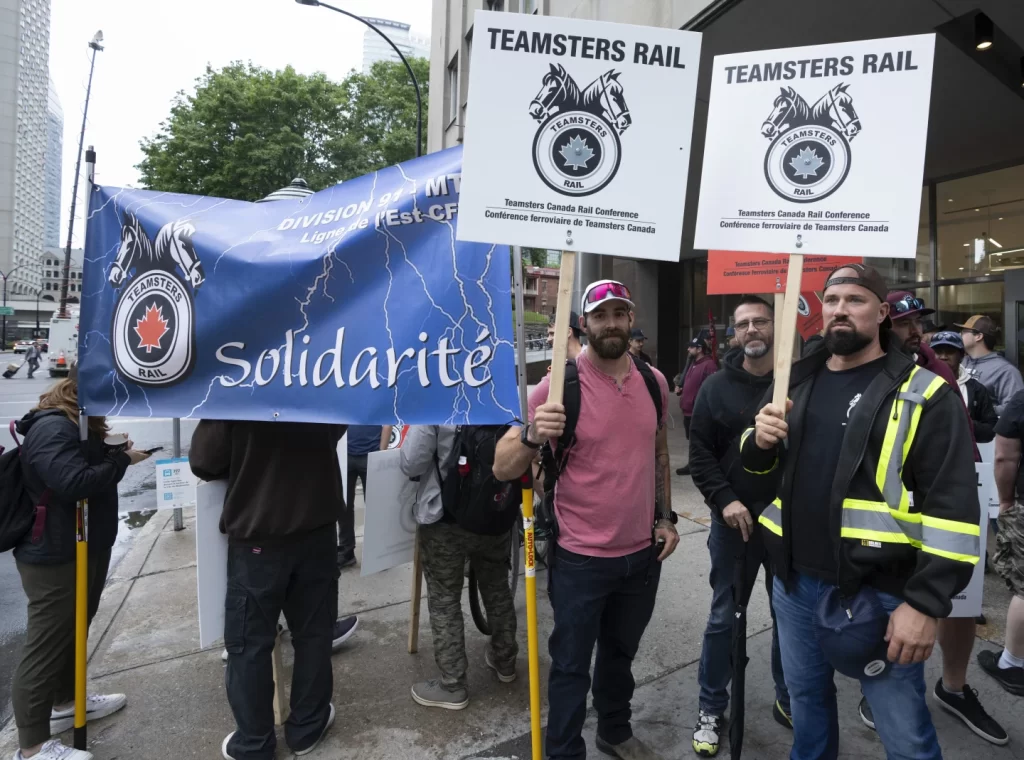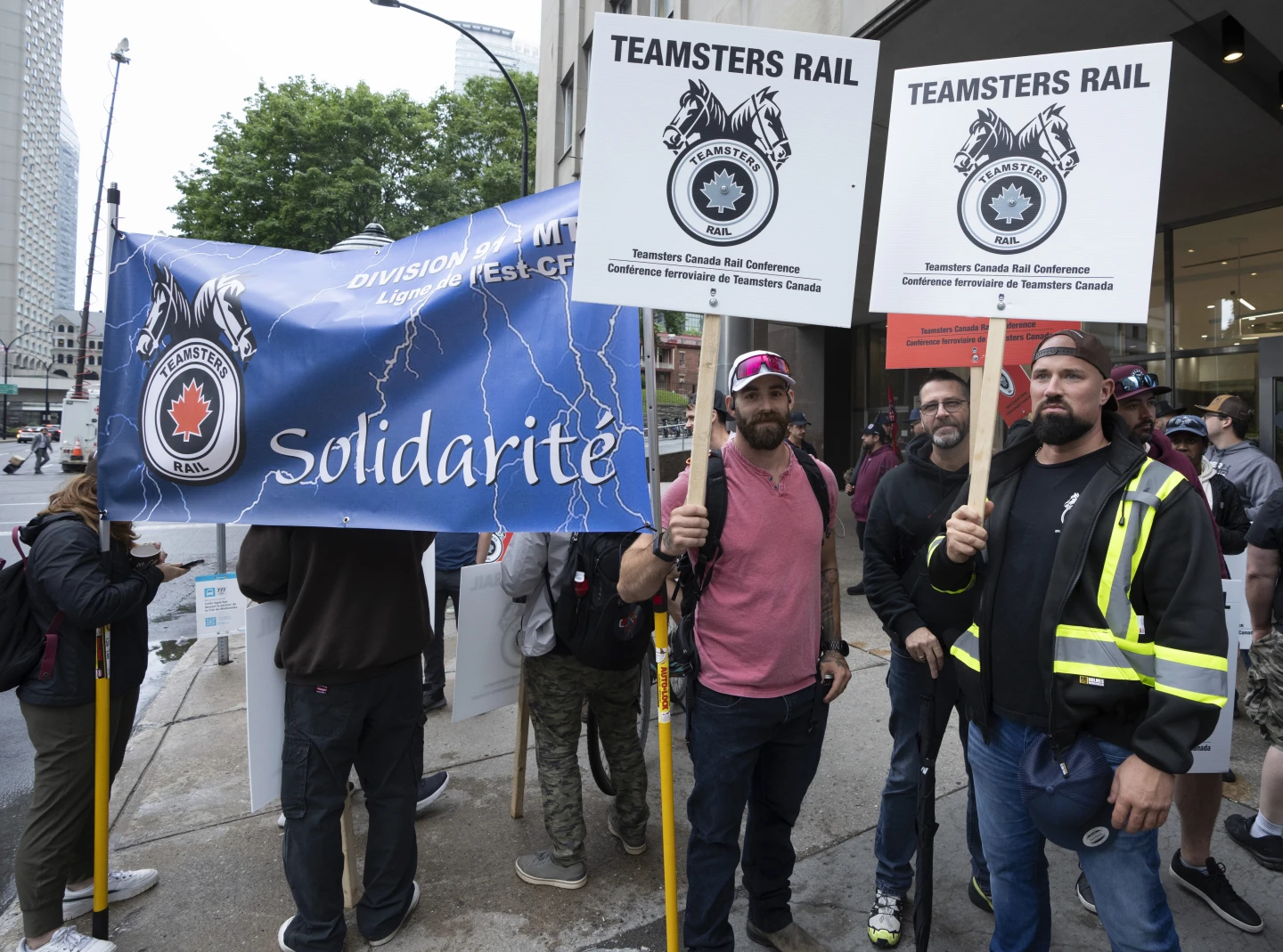OTTAWA, Canada — Canada’s two largest railroads, Canadian National (CN) and CPKC, have ceased operations across the country after failing to reach new labor agreements with the Teamsters Canada Rail Conference union before the Thursday night deadline. The shutdown is expected to have significant economic implications for both Canada and the United States.

The labor dispute has resulted in a lockout of nearly 10,000 engineers, conductors, and dispatchers, halting all train movements in Canada and stopping shipments into the United States. Both railroads continue to operate within the U.S. and Mexico.
Paul Boucher, President of Teamsters Canada Rail Conference, accused the railroads of “holding the Canadian economy hostage” to pressure the government into imposing binding arbitration. The union’s statement was posted on social media platform X, formerly known as Twitter.
The negotiations, ongoing for nine months with CN and a year with CPKC, have primarily stalled over issues related to worker schedules and rules designed to prevent train crew fatigue. Both railroads have offered raises consistent with recent industry deals but have not reached an agreement on these key points.
The economic impact of the shutdown is expected to be widespread. Chemical and food distribution industries are likely to be among the first affected, with hazardous materials shipments already halted.
The auto industry may face parts shortages within two weeks, potentially leading to vehicle shortages in both the U.S. and Canada.
Additionally, over 30,000 commuters in Vancouver, Toronto, and Montreal have been immediately impacted, with commuter trains operated by CPKC no longer running.

Greg Moffatt, executive vice president of the Chemistry Industry Association of Canada, stated that most chemical manufacturers have about a week’s worth of supplies before facing significant issues.
The automotive sector, which relies heavily on cross-border shipments, could see disruptions if the lockout persists. Michael Robinet, executive director at S&P Global Mobility, noted that the “just-in-time” inventory model of most auto assembly plants makes them particularly vulnerable to supply chain disruptions.
Prime Minister Justin Trudeau has so far declined to force the parties into binding arbitration, citing concerns about union relations. However, he stated, “We are not taking this lightly because Canadians across the country are worried about it,” and promised further statements on finding a solution.
Business leaders have expressed frustration with the lack of immediate government intervention. John Corey, president of the Freight Management Association of Canada, called the situation “infuriating,” warning of potential job losses.
The duration of the shutdown remains uncertain. While most previous Canadian rail stoppages have lasted only a day or two, some have extended to eight or nine days. The current situation is particularly critical as it involves both major railroads simultaneously.
Edward Jones analyst Jeff Windau suggested that many companies might withstand a short disruption due to supply chain adaptations made during the pandemic. However, a prolonged shutdown could have severe consequences.
Daniel Béland, a political science professor at McGill University, emphasized the rapidly increasing pressure from both sides of the border to resolve the situation quickly, given the potential for significant economic consequences in both Canada and the U.S.
.











